

Egypt has long been a place of mystery be it because of the pyramids the questions surrounding which have not been solved till date or the Sphinx. But those are not all the mysteries of this ancient land. It harbors many more, some almost a myth, unsolved, undiscovered. Some, well veil from some have been lifted and the truth has amazed the world. This is the uncovering of one such mystery, which many people did not even know existed in the first place.
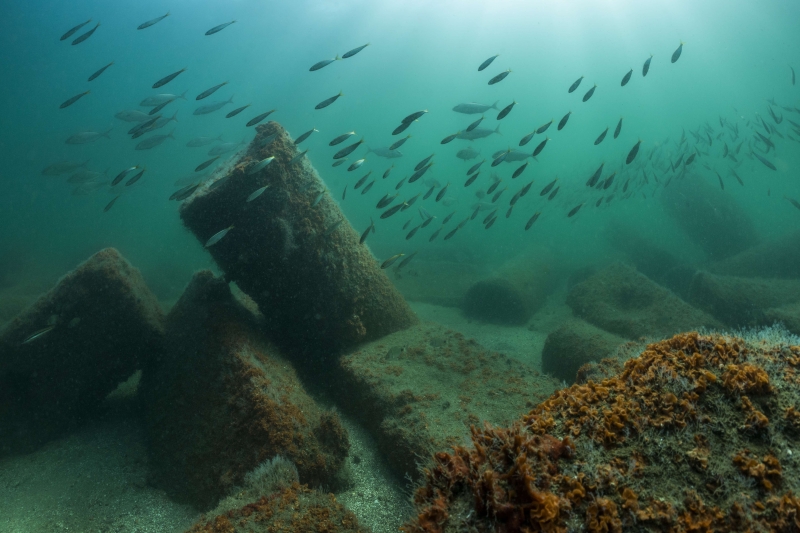 Unlike the city of Pompei and Babylon, the city of Thonis-Heracleion is not very well known. The reason? It has been lost for over 2500 years now and some had started believing that it did not exist in the first place. How and where was it found is not as interesting as WHAT was found in it. When a group of dedicated archeologists discovered this lost grand city, even they weren't prepared for what they found there.
Unlike the city of Pompei and Babylon, the city of Thonis-Heracleion is not very well known. The reason? It has been lost for over 2500 years now and some had started believing that it did not exist in the first place. How and where was it found is not as interesting as WHAT was found in it. When a group of dedicated archeologists discovered this lost grand city, even they weren't prepared for what they found there.
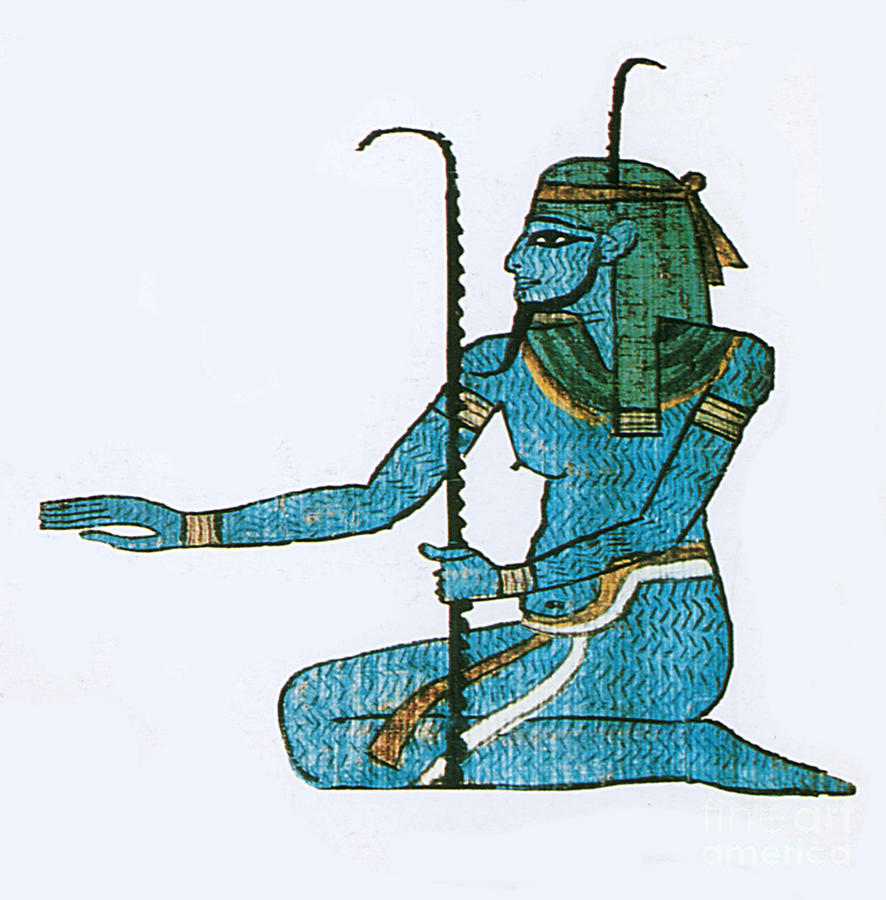 The Egyptian g0d of fertility, life-giving steward of its floods and lord of the river, Hapi for hundreds of years, proudly gazed upon the ships of trade and the bustling life of the city. Then, it was unarguably one of the greatest port cities on the face of the planet. The city of Thonis-Heracleion. But it was not meant to be so for long.
The Egyptian g0d of fertility, life-giving steward of its floods and lord of the river, Hapi for hundreds of years, proudly gazed upon the ships of trade and the bustling life of the city. Then, it was unarguably one of the greatest port cities on the face of the planet. The city of Thonis-Heracleion. But it was not meant to be so for long.
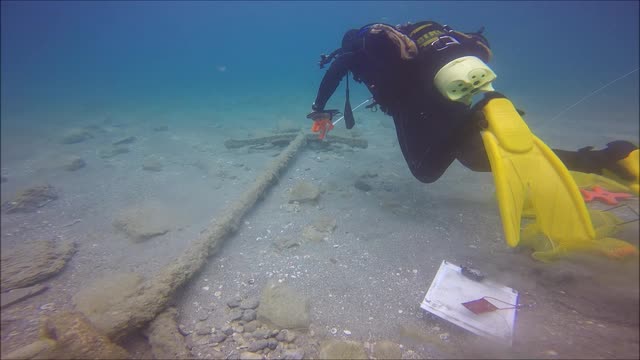
It was probably the end of the 2nd century BC; Earth quaked open, there were tremors and the ground began to sink beneath Hapi's feet. More than six tonnes of finely crafted stone and artwork submerged into the sea, within a matter of minutes. The remaining settlement soon followed and the legendary city of antiquity vanished underwater as if it never existed.
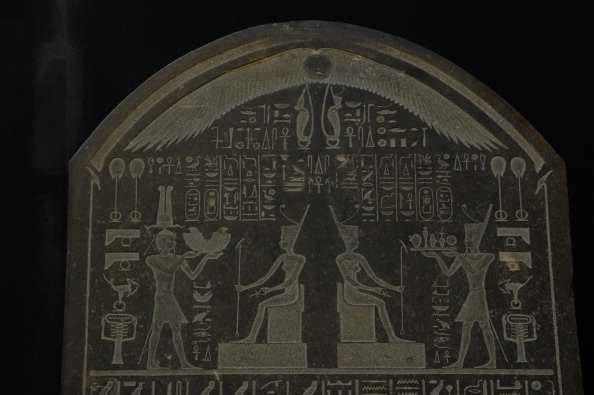
In modern history textbooks, the city of Thonis-Heracleion was rarely mentioned. It was a legend but also a myth. All that was known about it was that it was like an ancient Egyptian Venice and the city was exquisitely built with canals and was the mainland for trade. That it submerged into the water completely because of an Earthquake is also just a theory. Absolutely nothing was concretely known about this city until recently when it was rediscovered.
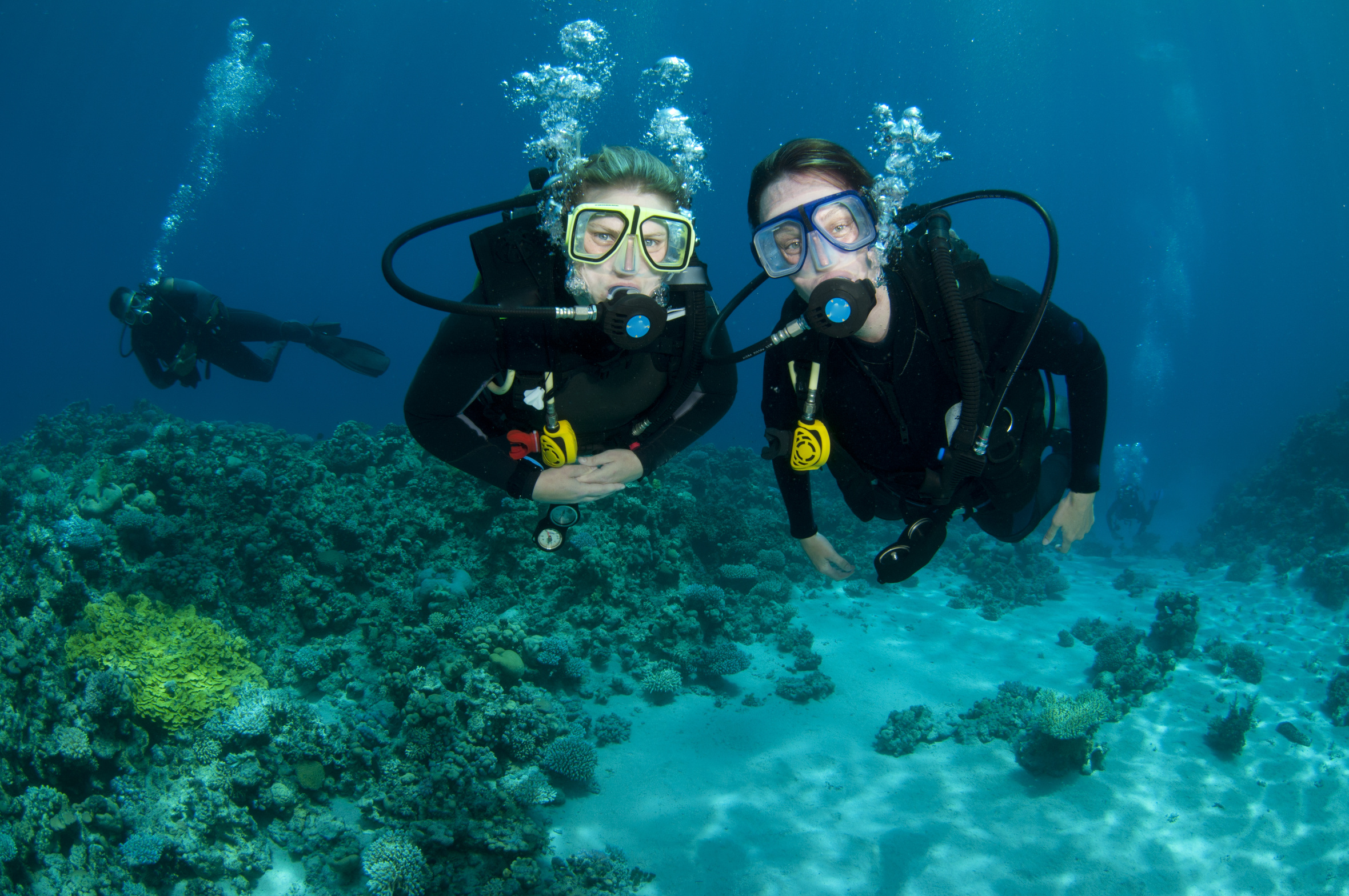 It was the early 2000s and a crew of divers were off the Egyptian coast when they came upon a huge rock fragment under the sea and decided to bring it to the land. It was a fragment of the statue of Hapi, covered it salt but intact. They decided to continue their search and found 6 such fragments. There were other things found around this and when researchers got to know about it, they were ecstatic. This could be the city of Thonis-Heracleion they had been looking for.
It was the early 2000s and a crew of divers were off the Egyptian coast when they came upon a huge rock fragment under the sea and decided to bring it to the land. It was a fragment of the statue of Hapi, covered it salt but intact. They decided to continue their search and found 6 such fragments. There were other things found around this and when researchers got to know about it, they were ecstatic. This could be the city of Thonis-Heracleion they had been looking for.
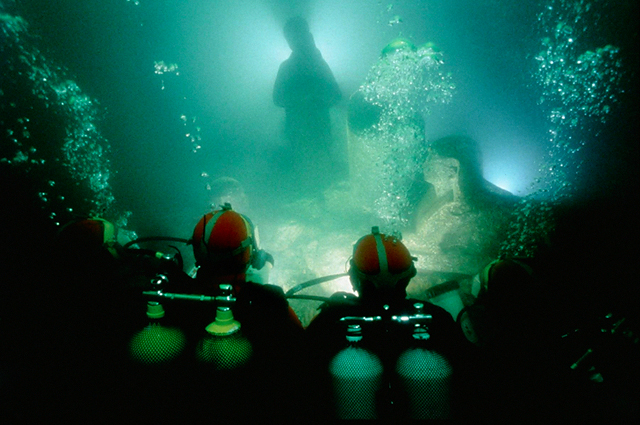 Archaeologists took upon themselves to find this lost city and prove to the world that it was not a myth. Not only did they want to find the city, but they also wanted to learn about the culture of the residents and how it managed to become a port town. The screened the area of the Abu Qir Bay off the coast of Egypt for years and finally, their dedication paid off. Only they were not prepared for what they were about to find.
Archaeologists took upon themselves to find this lost city and prove to the world that it was not a myth. Not only did they want to find the city, but they also wanted to learn about the culture of the residents and how it managed to become a port town. The screened the area of the Abu Qir Bay off the coast of Egypt for years and finally, their dedication paid off. Only they were not prepared for what they were about to find.
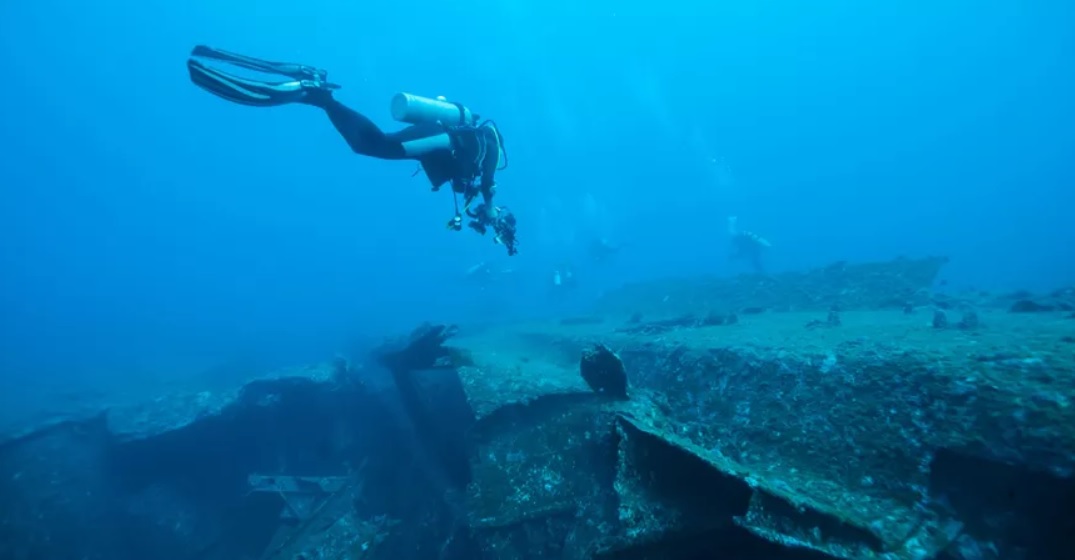
Finally, hidden 6.5 kilometers off Alexandria’s coast under water was the city of Thonis-Heracleion. Aurélia Masson-Berghoff, curator of the Sunken Cities exhibition at the British Museum said, “As an archaeologist, discovering a tomb is exciting, but it’s the tomb of one individual." She continued, “Discovering a whole city, which was home to thousands and thousands of people over more than a thousand years … Well, that’s something else.”
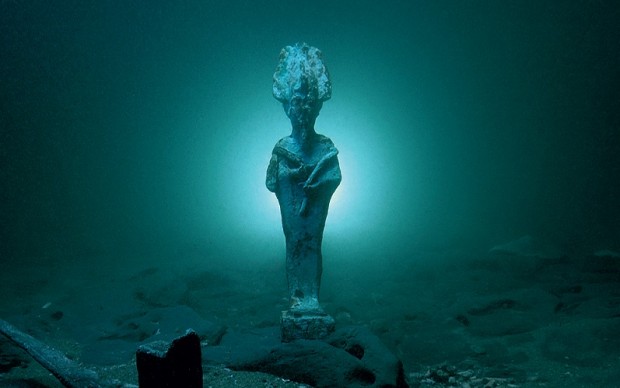 Frank Goddio and his team of archaeologists found 64 ships, 700 anchors, statues as tall as 16 feet, treasure chests of gold coins among the underwater ruins. And this was not even the beginning. Just imagine what an entire city takes to be built. That is all that these researchers found and the images ahead are breathtaking. There were also temple ruins, jewelry, pottery equipment, oil lamps and much more.
Frank Goddio and his team of archaeologists found 64 ships, 700 anchors, statues as tall as 16 feet, treasure chests of gold coins among the underwater ruins. And this was not even the beginning. Just imagine what an entire city takes to be built. That is all that these researchers found and the images ahead are breathtaking. There were also temple ruins, jewelry, pottery equipment, oil lamps and much more.
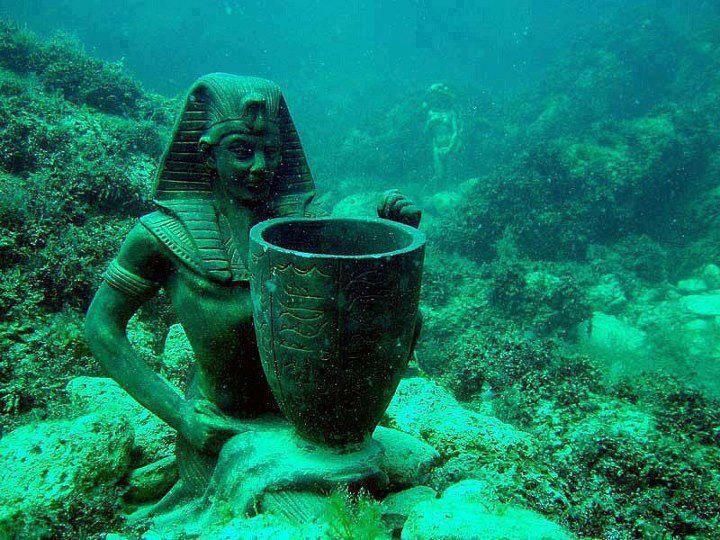
Among the most breathtaking finds were the remains of a temple dedicated to the g0d Amun-Gereb and the sarcophagi of animals that were chosen for offerings. What is surprising is that even after being submerged underwater for well over 2000 years the artifacts constructed out of granite and diorite are well preserved and give a good look into the life of this port city of centuries old.
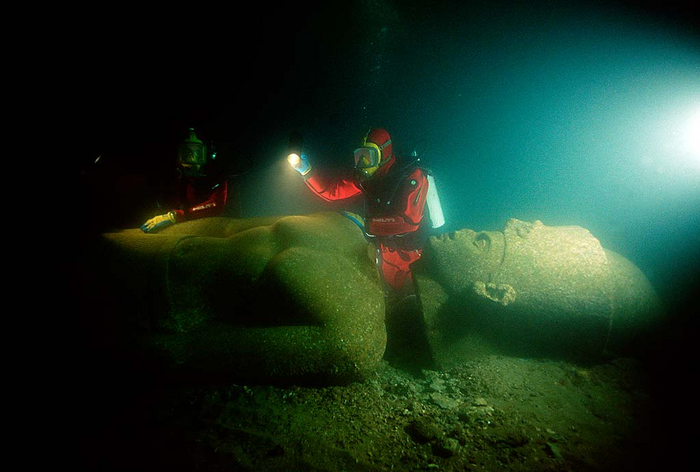
From what has been found till now, it is clear that Thonis-Heracleion was a bustling town a cosmopolitan entrance to the Mediterranean and its connection to the western world. It was a city of temples and tower houses, garlanded by harbors and all linked by a network of bridges and ferries- the city was responsible for the most traffic coming to Egypt via sea from the Mediterranean. Imagine having discovered all this knowledge AFTER digging out a buried city.
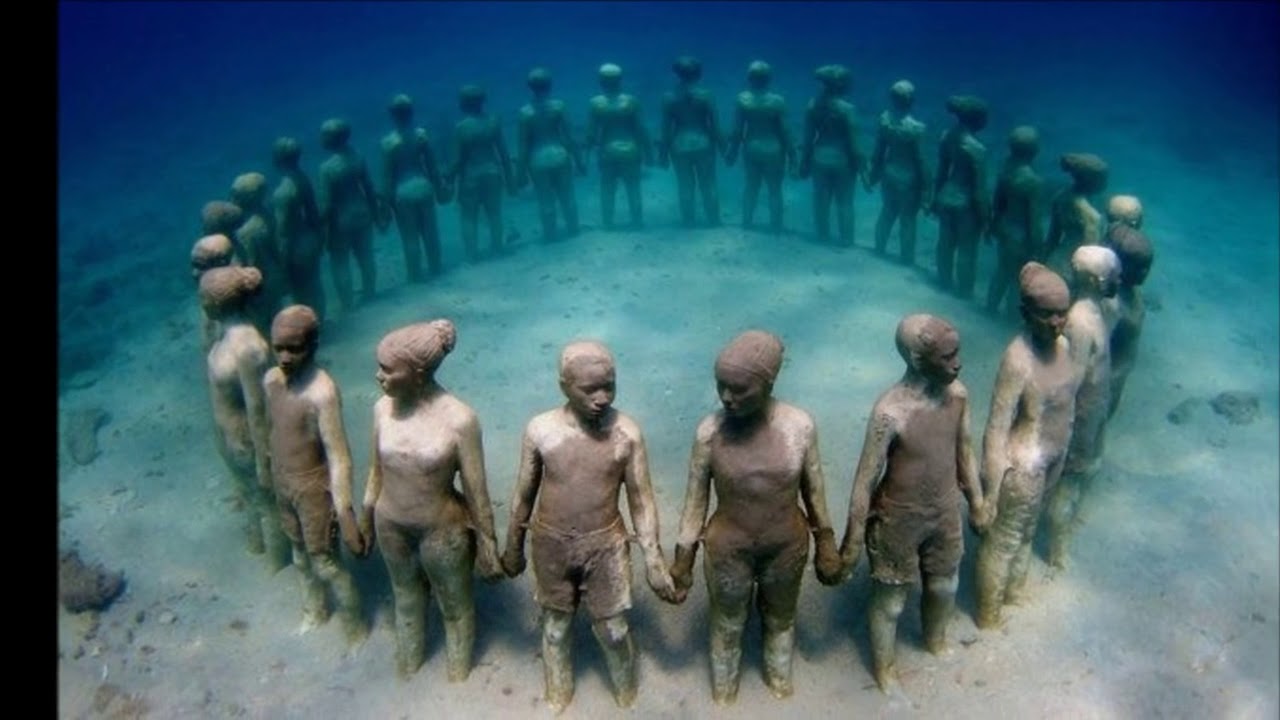 It actually began in 1933 when a pilot was supposed to have spotted something in the waters off Egypt's coast. By the end of that century, the European Institute for Underwater Archaeology had sent a team to find the lost city. The team took years to chart out maps and a lot of technological aid was taken as the visibility in the waters was low. One researcher said, “the sea is all stirred up, and charged with floating sand and mud that makes it difficult for us divers to see what is going on."
It actually began in 1933 when a pilot was supposed to have spotted something in the waters off Egypt's coast. By the end of that century, the European Institute for Underwater Archaeology had sent a team to find the lost city. The team took years to chart out maps and a lot of technological aid was taken as the visibility in the waters was low. One researcher said, “the sea is all stirred up, and charged with floating sand and mud that makes it difficult for us divers to see what is going on."
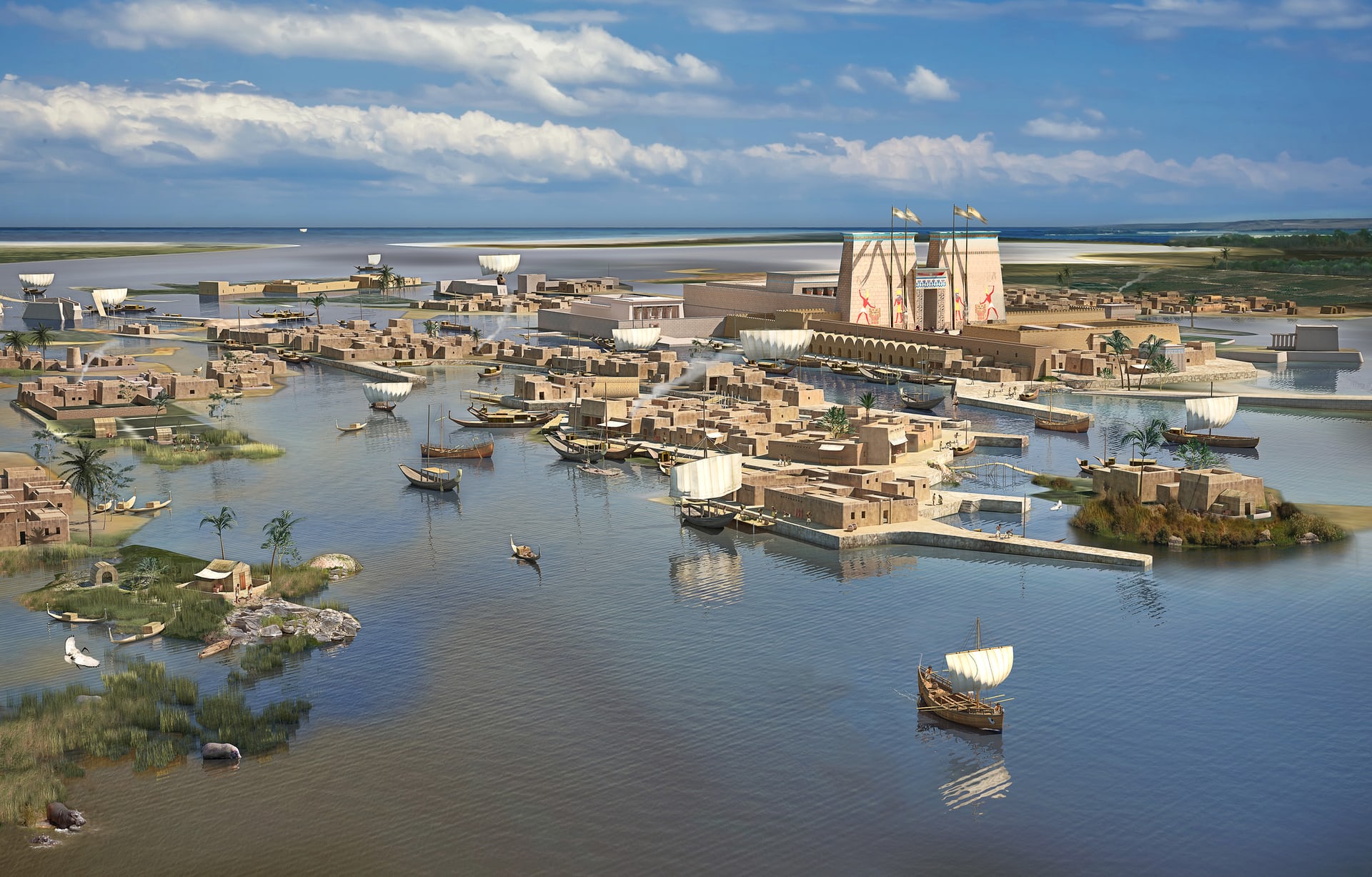 This is a recreation of how the city would have looked like when it existed and this recreation was only possible after what the researchers found underwater. This is the place where after abducting Helen, Paris of Troy sought refuge. This is also the city where the hero Heracles set foot in Africa for the first time. How lucky the archaeologist community is to have found this place so rich in history. We were more boggled than they were after looking at the artifacts they brought to the surface.
This is a recreation of how the city would have looked like when it existed and this recreation was only possible after what the researchers found underwater. This is the place where after abducting Helen, Paris of Troy sought refuge. This is also the city where the hero Heracles set foot in Africa for the first time. How lucky the archaeologist community is to have found this place so rich in history. We were more boggled than they were after looking at the artifacts they brought to the surface.
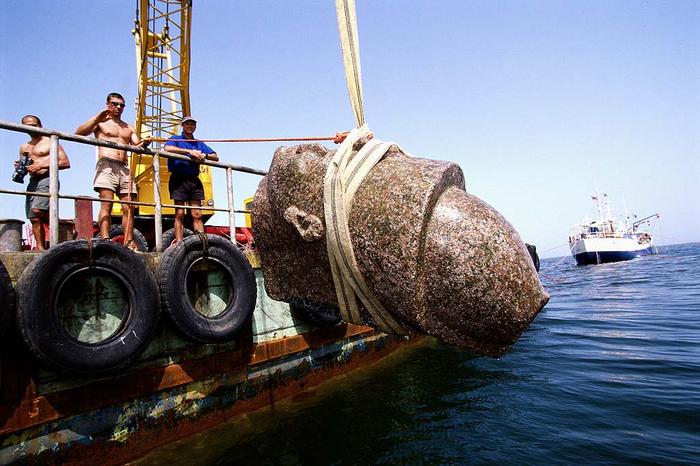
The city is believed to have been lost to the sea around the 8th century CE. The facts of its existence faded over the years as no proof of it was ever found other than a rare mention in some ancient text or another. There was no physical evidence of its truth until recently when it became a hard fact rather than a memory of history which was fading away.
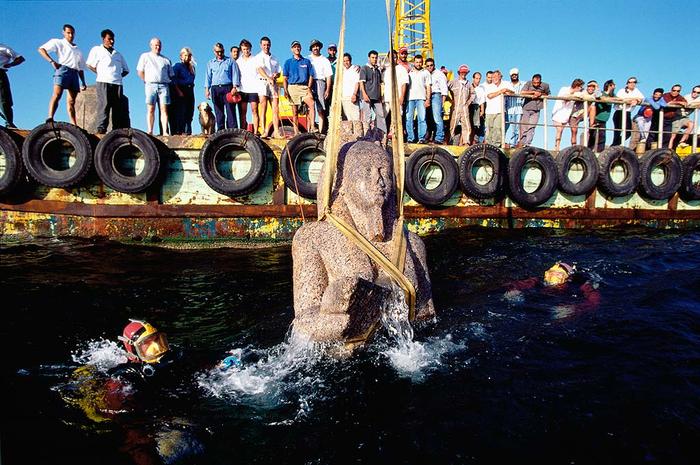
Just look at this magnificence! This was all made possible by the historians' beliefs in the random references in ancient texts and their determination to not let history and a culture die away without recognition in the arms of the sea. This is just a part of what they discovered. The pictures ahead are really awe-inspiring and make one wonder at the minds of the Egyptians!
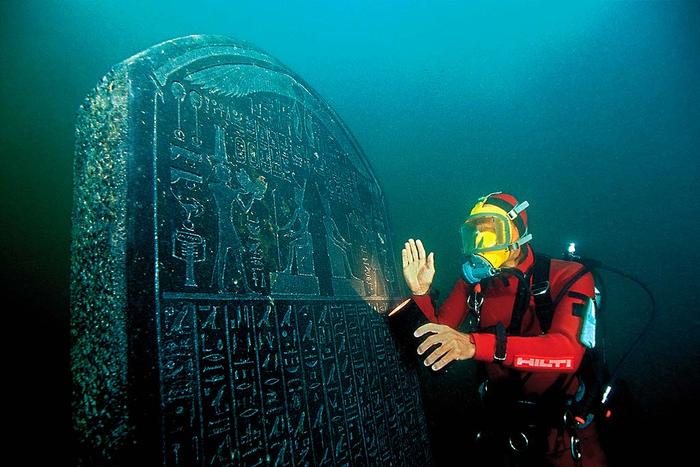
It took Franck Goddio and his team more than 13 years to carry out the operation of excavating an entire city submerged under see! But it was worth the time and wait for the things they found there are nothing short of amazing. Their work literally paid off as they also found a lot of gold under there. The city started to take shape once again, piece by piece.
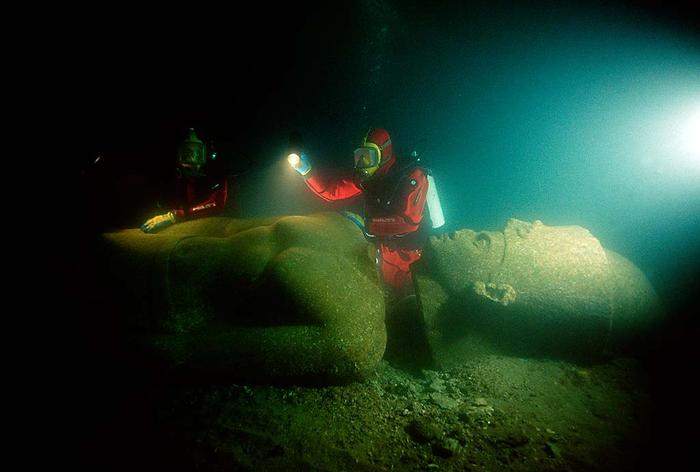 What you are about to see are huge and almost entirely intact statues of g0ds and g0ddesses, uncountable gold coins, tablets with inscriptions and temples. It took more time for the excavation team than expected as the city was quite big. They did not expect a place which was almost like a myth a few years ago to be so humungous. What they found is nothing short of a miracle.
What you are about to see are huge and almost entirely intact statues of g0ds and g0ddesses, uncountable gold coins, tablets with inscriptions and temples. It took more time for the excavation team than expected as the city was quite big. They did not expect a place which was almost like a myth a few years ago to be so humungous. What they found is nothing short of a miracle.
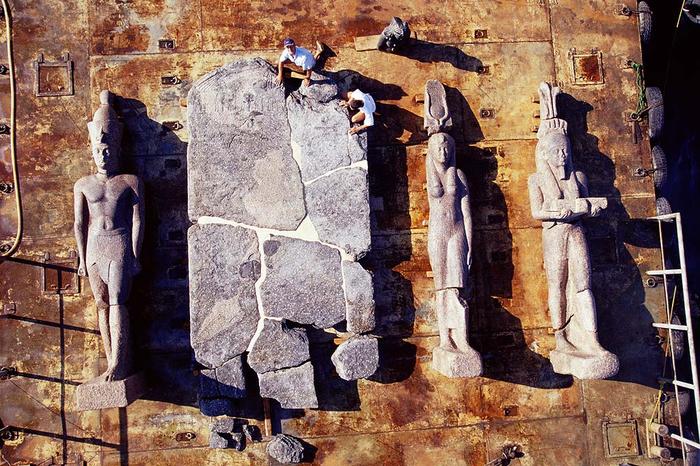
What you see in front of you are just a few statues from the numbers that were found under the water. What is surprising is that even after being underwater for thousands of years these statues have not seen much wear and tear. This means that the Egyptians used materials that were long lasting and that stands the tests of time. It is not really surprising as it is the same civilization that built the amazing and mystifying pyramids.
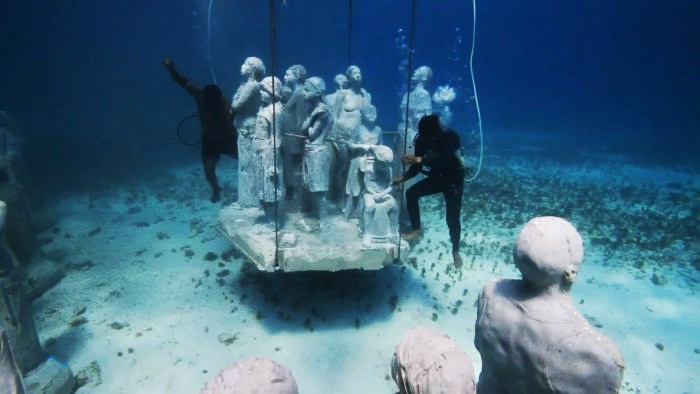
Discovering was one thing and carrying out the excavation whole another. The statues weigh tonnes of kilos and it took a large team to carry out the process of bringing these huge artifacts on the surface from underwater. One really got to appreciate the divers who put their lives in danger to preserve a piece of history. Then after these artifacts were moved out, taking care of them is another huge task too.
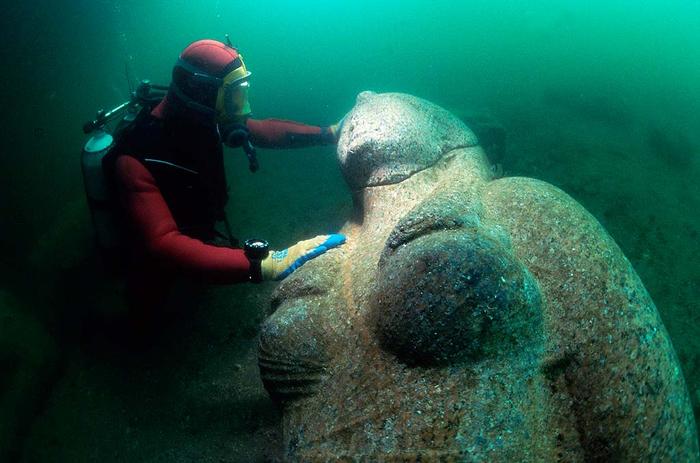 It is also two different experience, seeing a city submerged under water and bringing it back to land to recreate it. One lucky man to have seen this is obviously Frank Goddio. In the picture above he can be seen examining with awe a statue of a pharaoh. This one is above 16 feet tall! But there were more surprising things found under this sea.
It is also two different experience, seeing a city submerged under water and bringing it back to land to recreate it. One lucky man to have seen this is obviously Frank Goddio. In the picture above he can be seen examining with awe a statue of a pharaoh. This one is above 16 feet tall! But there were more surprising things found under this sea.
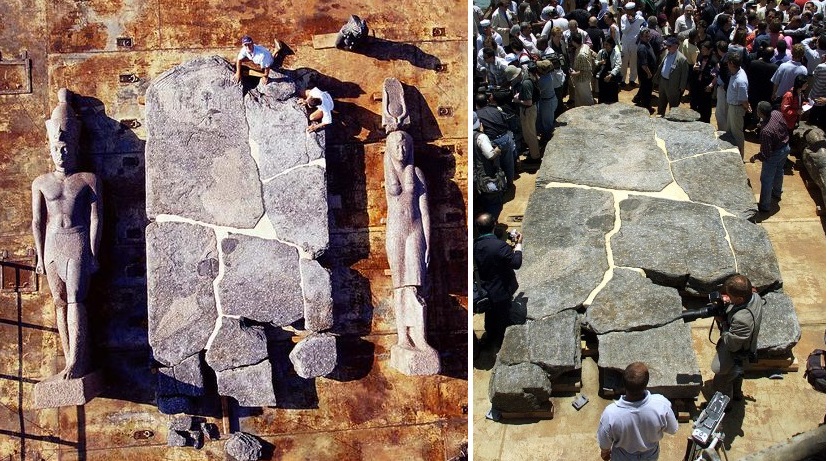
This city did not submerge underwater as it is. Something terrible must have happened to have left an entire city to sink in water. If it was indeed an earthquake it did manage to destroy some artifacts. The Stele you see in the picture was discovered broken in 17 pieces. The lucky divers managed to find them all and pieced it all together like a puzzle. But one of the most incredible discovery was this.
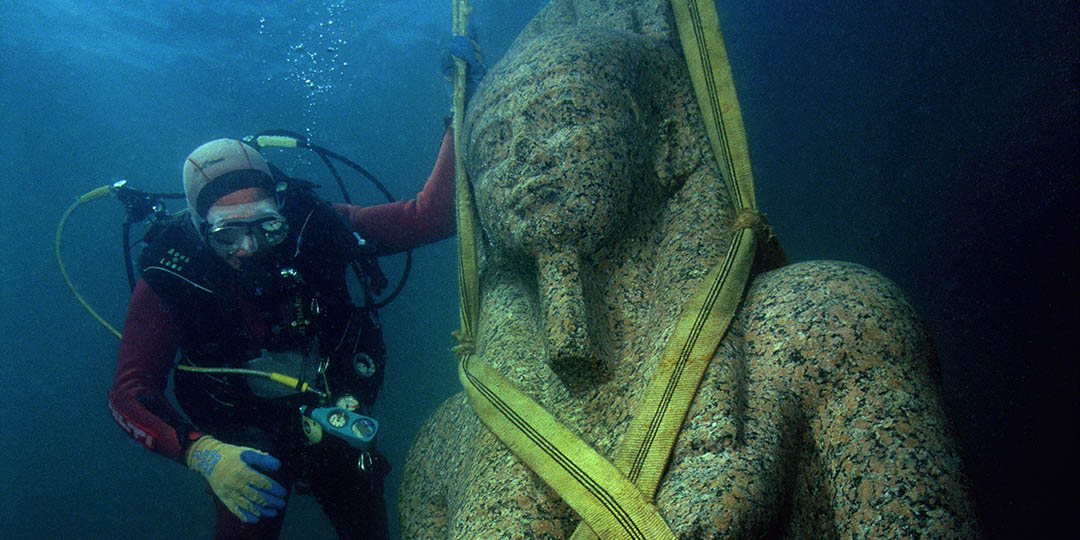
This is a red granite statue that weighs more than 4 ton and it was found near the huge temple of Heracleion. Coming across these statues in almost intact condition was nothing short of a miracle for the divers, it was as if they struck gold. But they found stuff other than statues too.
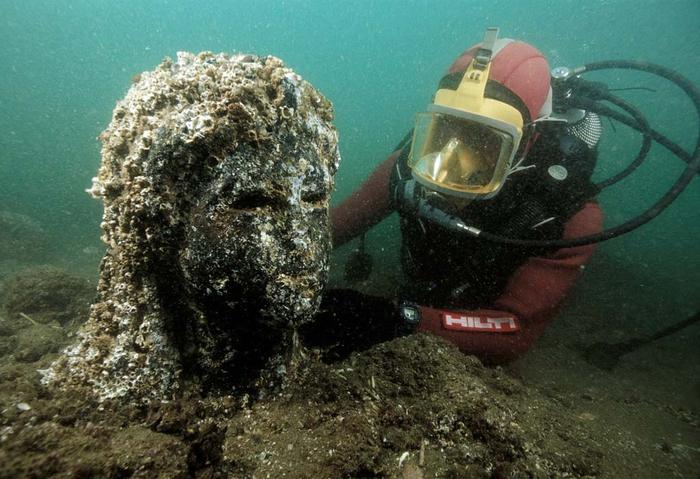
This magnificent statue is the representation of a Graeco-Egyptian queen which is carved in dark stone. The legendary city which had been almost lost from the history would resurface in such glory, no one could have thought. Next, the divers found a strange plaque.
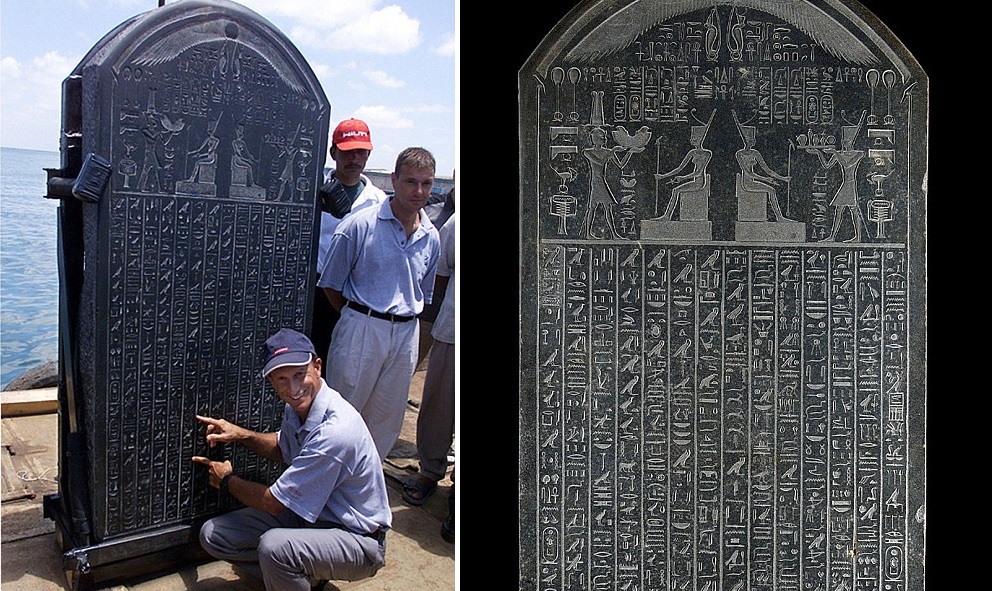
Getting this heavy stele out which the diver Franck Goddio is pointing is this picture was another big task for the divers. Digging a little into its history, researchers found that around 370 B.C it was ordered to be built by Nectanebo I. They found other such intriguing artifacts.
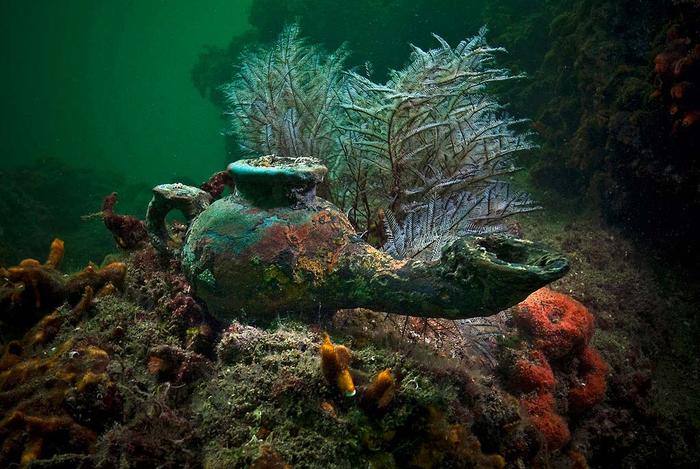 One would wish it to be an Aladin's lamp from which a genie comes out but unfortunately, that is not so. This bronze oil lamp, almost in a normal condition was quite an amazing discovery for the divers as it is as old as 2nd century B.C. And for an oil lamp that old, it seemed to be in a good condition just like other things ahead.
One would wish it to be an Aladin's lamp from which a genie comes out but unfortunately, that is not so. This bronze oil lamp, almost in a normal condition was quite an amazing discovery for the divers as it is as old as 2nd century B.C. And for an oil lamp that old, it seemed to be in a good condition just like other things ahead.
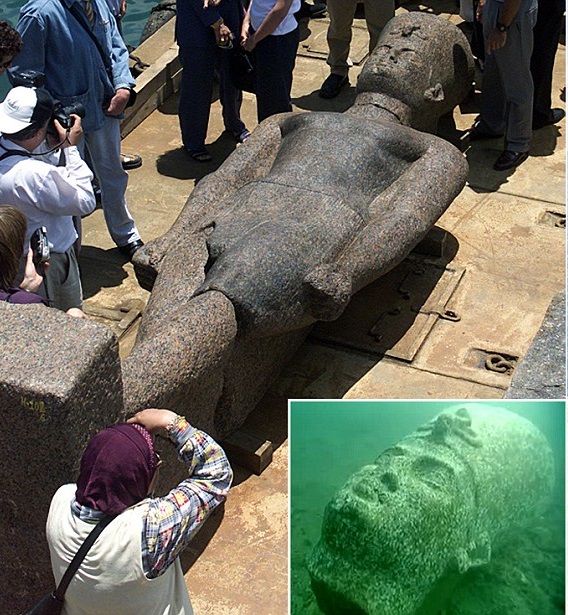
The discoveries of statues at least seemed without any end. The city was surely very religious as this was another pharaoh's statue which measured more than 5 meters! Again, it was made wholly out of red granite and inside the sea, the head was separated from the body.
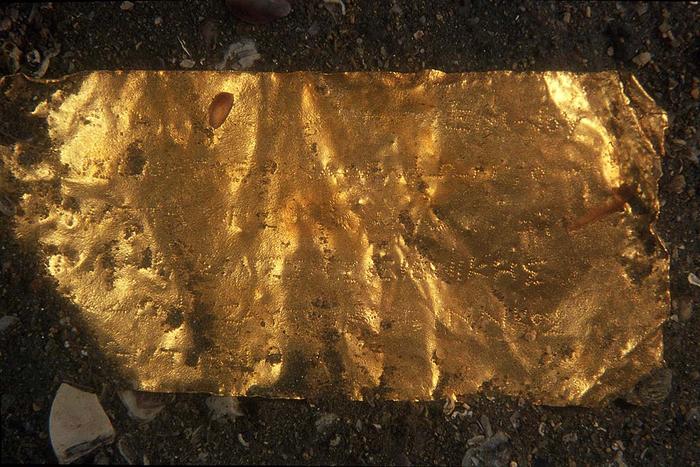 This is how the divers literally struck gold. Somewhere in the south of the city, they found this gold plaque with Greek engravings. The closest guess has been that this is King Ptolemy III's (246-222 B.C.) signature to approve the building of an area and this is not it.
This is how the divers literally struck gold. Somewhere in the south of the city, they found this gold plaque with Greek engravings. The closest guess has been that this is King Ptolemy III's (246-222 B.C.) signature to approve the building of an area and this is not it.
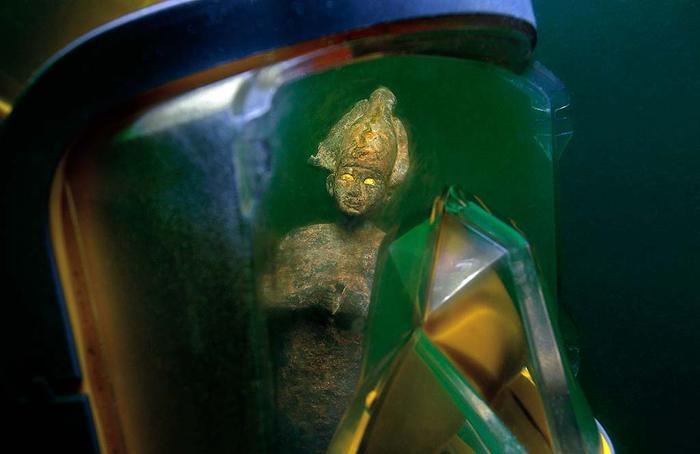
In ancient Egypt, Osiris was the g0d of the underworld, the afterlife, and rebirth. This image shows a bronze statue of his bearing his crown to wield his power. If it is looked at closely, you'd notice that the eyes of the statue are gold plated. Lots of other stuff made entirely of gold was found too.
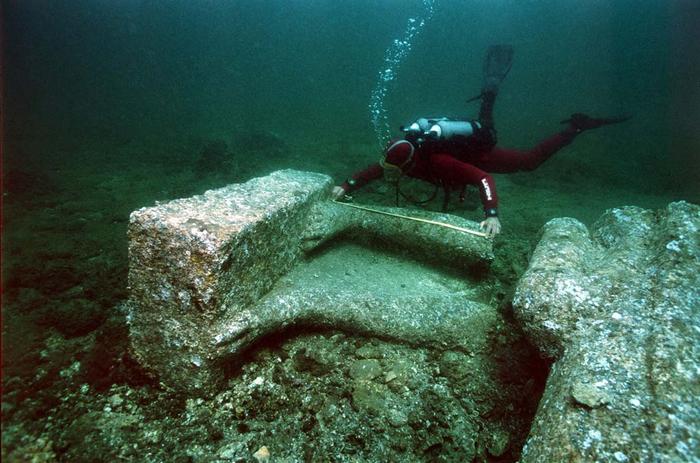
Here you can see one of the team members following the protocol of taking exact dimensions of the statue they would later take out of the sea. Since this site in Aboukir Bay is such a rare find, all was to be documented properly down to the last decimal. Another item found worth preserving was this.
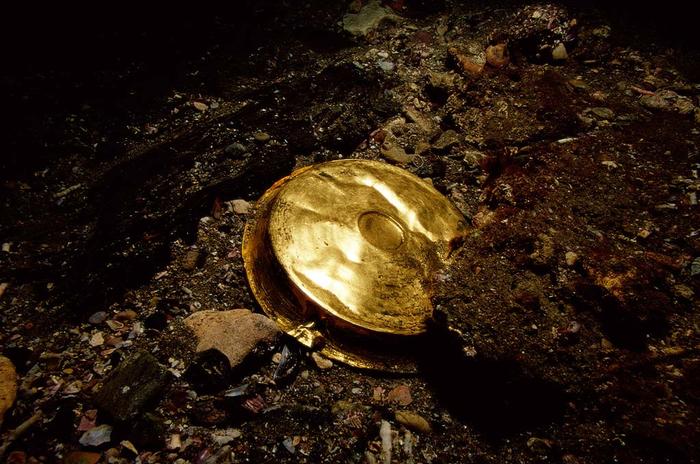
The ancient Egyptian settlements were so rich that they ate their food and had their drinks from gold utensils. In the picture, you can see a shallow dish made out of gold which was used for the purpose of serving and drinking. What more, there were entire stones made out of gold found too.
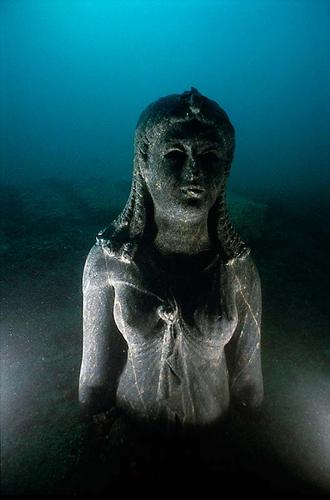
When divers came across this beautiful statue they were stunned by its beauty. Immediately there was a debate among researchers to know who this Ptolemaic queen dressed as the goddess Isis was. They have not settled whether its Cleopatra II or Cleopatra III. Then there is this...
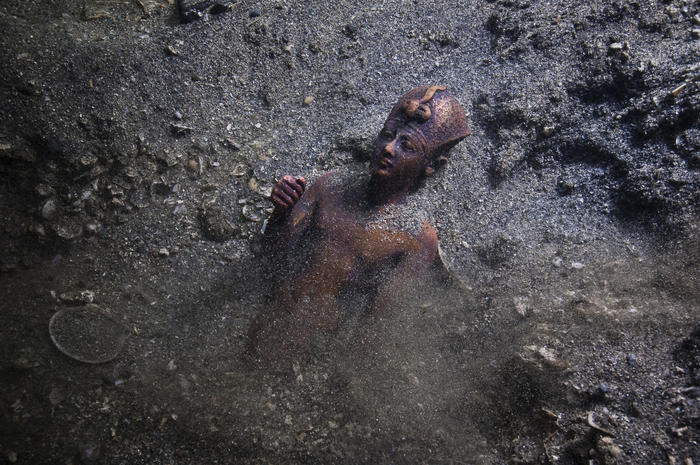
This is probably the find of their lifetime- for the people engaged with this project of recreating the entire city stone to stone back on land. Nothing could beat finding so many artifacts all together, in fact, a whole city underwater.
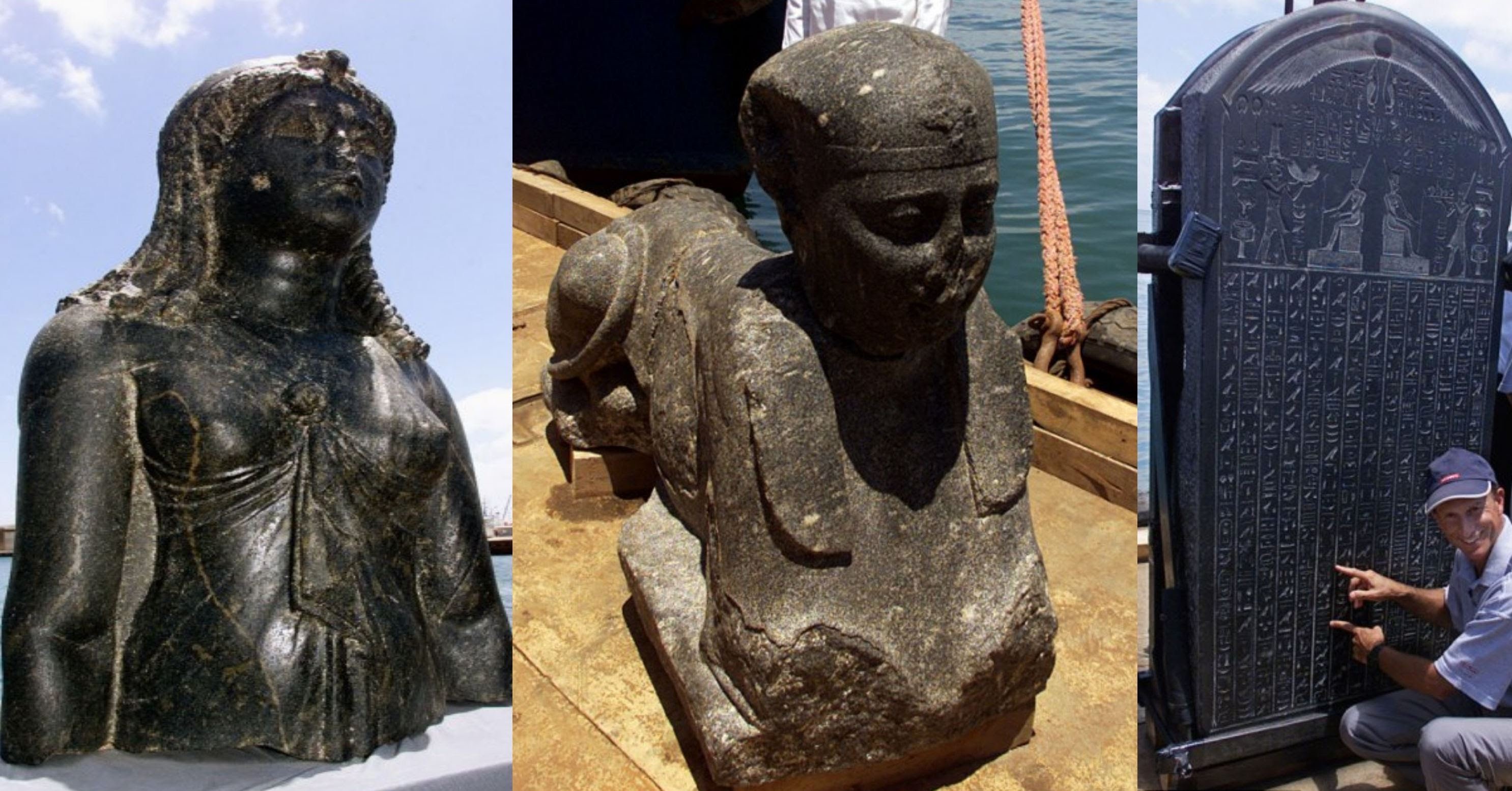
Since it is an entire lost city that has resurfaced it has attracted historians and archaeologists from around the world who have flocked to carry out research on the same. This is really a treasure of a kind discovered by mankind!
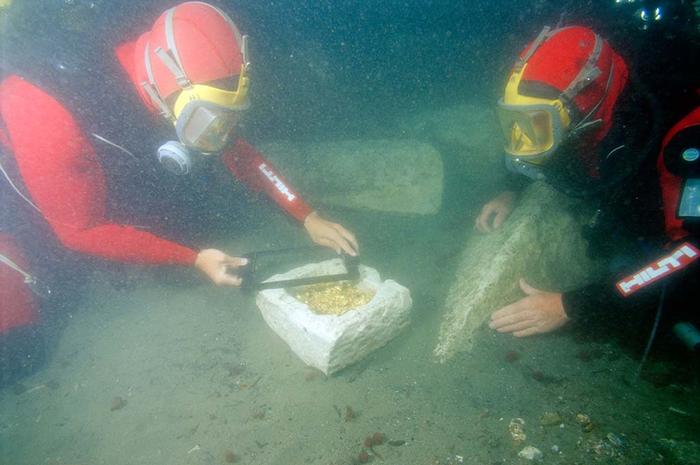
What is most surprising is that even after being underwater for thousands of years the city was almost untouched. Nothing seems to have been lost, everything came together nicely. One could say that the city was laying there patiently, waiting to be discovered.
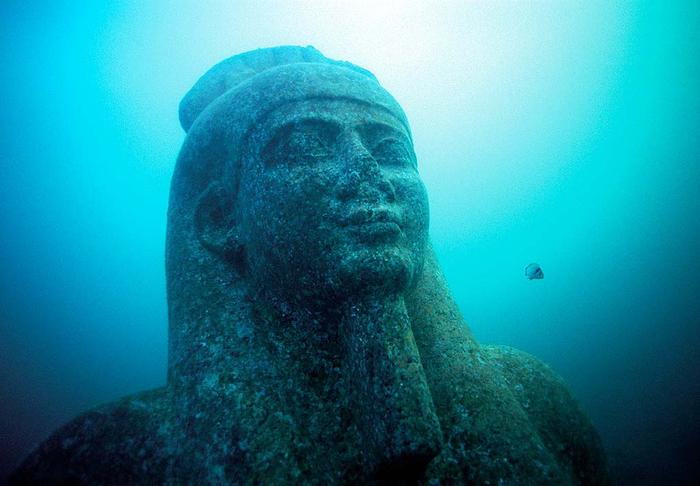
This is the granite statue of Hapi and it is among the few statues of its size from the ancient past to have been discovered in almost unscratched condition. Mesmerizing isn't it? But this is not the end of this city.
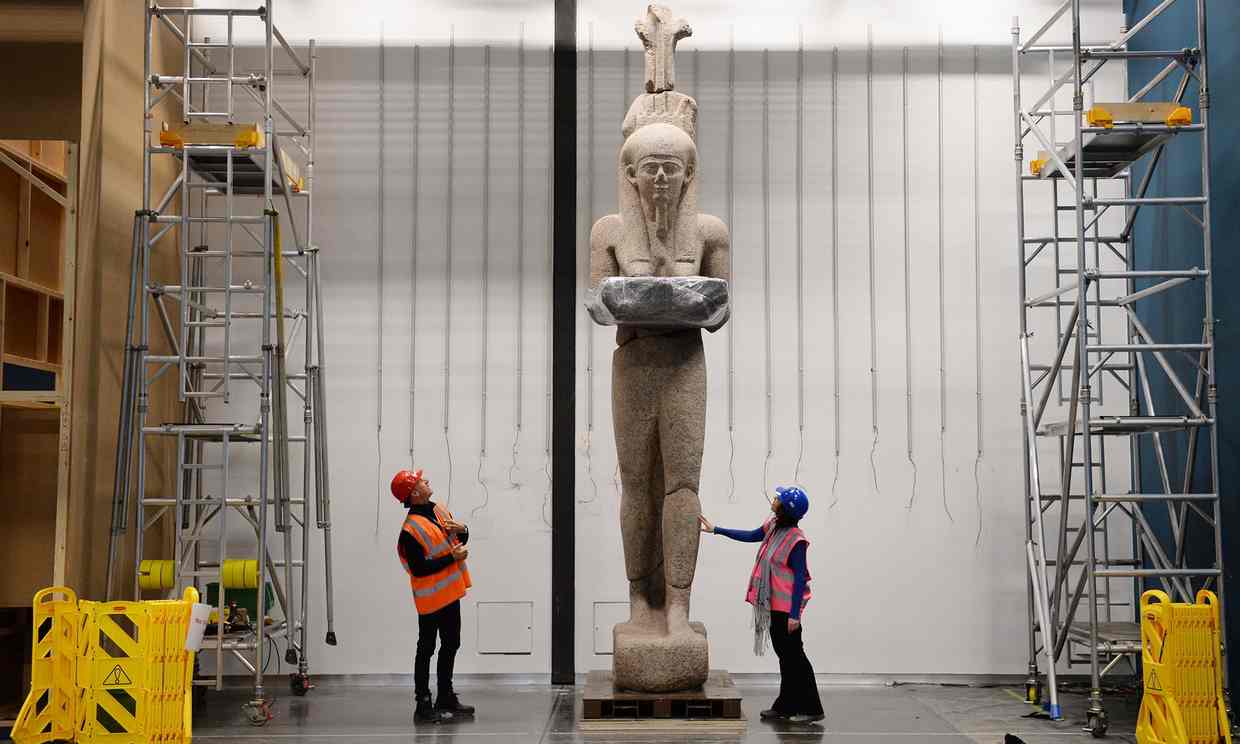 An entire museum can be made for the city of Thonis-Heracleion, such is the magnitude of the discovery. Whether there will be a new museum for this incredible find or things will be shifted to an already existing one it has not been decided yet, one this is for sure- the finds will be open to the public.
An entire museum can be made for the city of Thonis-Heracleion, such is the magnitude of the discovery. Whether there will be a new museum for this incredible find or things will be shifted to an already existing one it has not been decided yet, one this is for sure- the finds will be open to the public.
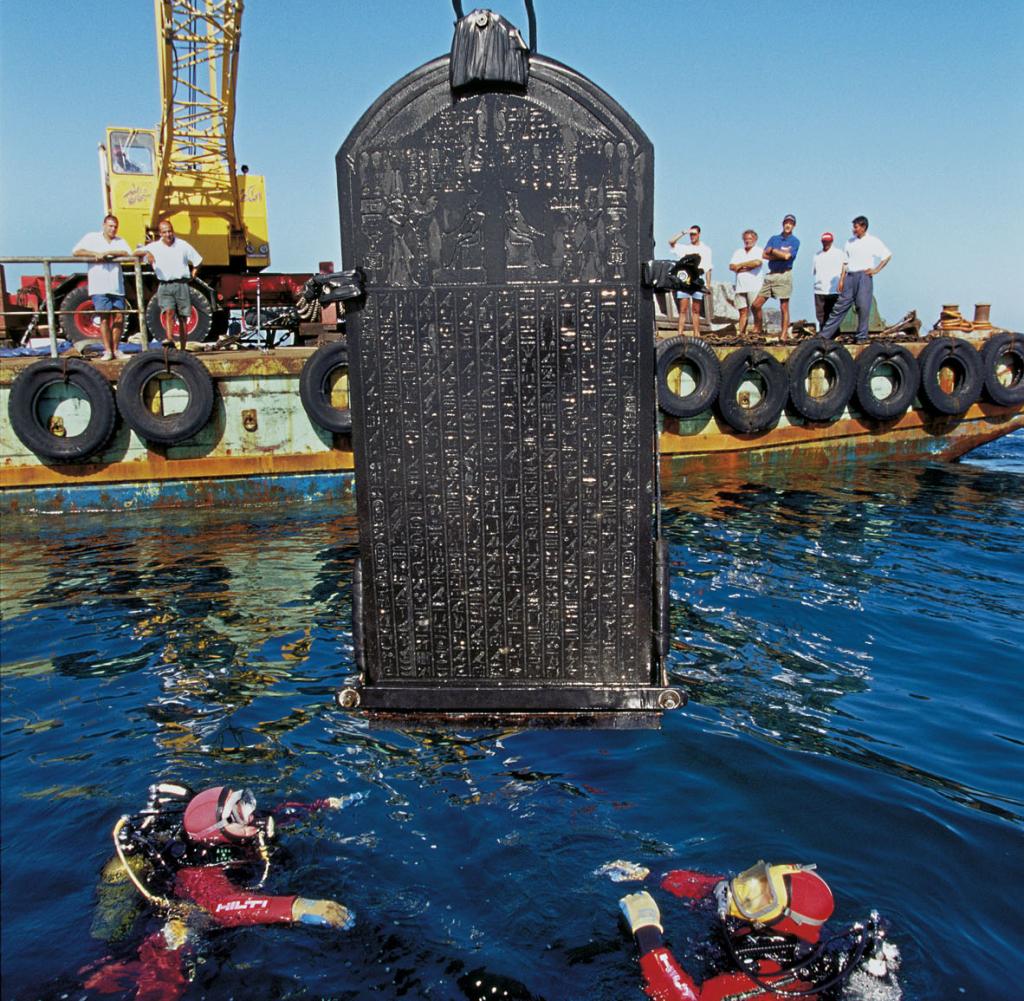 Masson-Berghoff, one of the researchers involved in the project said, “My hope is that future discoveries will enable us to shed more light on the lives of ordinary people.” We hope to find out more about an entirely new civilization too.
Masson-Berghoff, one of the researchers involved in the project said, “My hope is that future discoveries will enable us to shed more light on the lives of ordinary people.” We hope to find out more about an entirely new civilization too.
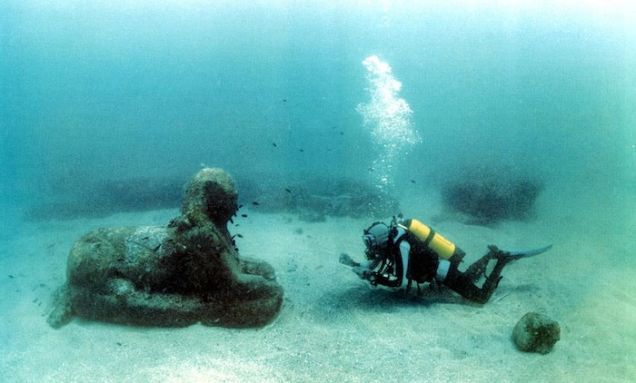 Frank Goddio said that “What we know now is just a fraction.” A lot of area remains unexplored. He continued- “We are still at the very beginning of our search," said Frank.
Frank Goddio said that “What we know now is just a fraction.” A lot of area remains unexplored. He continued- “We are still at the very beginning of our search," said Frank.
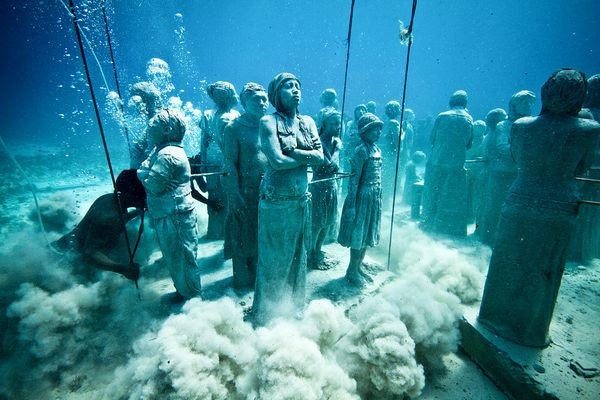 This discovery makes one wonder what other things could be hidden from human sight yet within reach. This creates hope for other lost history legends which might be rediscovered soon and enrich our history even more!
This discovery makes one wonder what other things could be hidden from human sight yet within reach. This creates hope for other lost history legends which might be rediscovered soon and enrich our history even more!